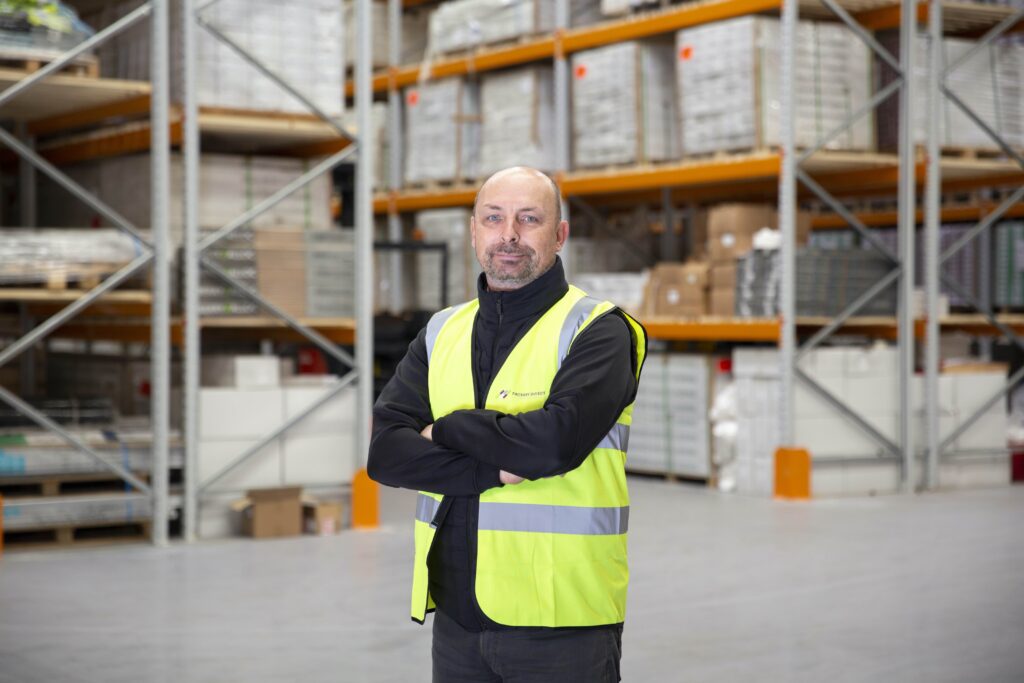Retailer to logistics industry: “get innovative”
8th September 2021

The founder of Midlands-based flooring manufacturer and retail firm Factory Direct Flooring (FDF) is calling on the UK logistics sector to generate more creative ways to attract and retain drivers and workers.
Amid news of tactics such as sign-up and retention bonuses, and mammoth apprenticeship schemes, Paul Hambidge of FDF is applauding these efforts and calls on firms to continue in this vein.
While the hospitality and fast-food sector supply challenges have been highlighted in the media recently, stock across a wide number of sectors has become harder to obtain and shipping costs are spiralling. The current supply issues are affecting businesses like FDF, which supplies to the home improvements, renovation and developer markets, and is having a serious knock-on effect to tradespeople, main contractors and homeowners.
FDF is in a strong position due to its move to a larger warehouse earlier this year – which has allowed it to increase stockholding and strategically manage longer manufacturing and shipping lead times – but Hambidge says fresh, homegrown solutions to supply chain issues are needed fast to ensure businesses remain viable. Being tactically inventive to attract the workers needed will not only help to keep many UK SMEs afloat, but it will also ensure consumers aren’t forced to bear the brunt of the ongoing global challenges.
Hambidge – whose Nuneaton-based firm FDF supplies flooring products including Luxury Vinyl Tile (LVT), laminate and engineered wood – warns that the current scenario of supply chain issues, coupled with lower product supplies from the east and Europe is making availability of products for the trade and developer, and consumer markets, significantly lower and notably more expensive.
The challenges, due to various issues caused by the pandemic and Brexit, are being further exacerbated by container shipping cost hikes and transport issues as a result of truck driver shortages, as well as the postponement of HGV lessons and tests during lockdown.
Hambidge explains: “Just as it has been heavily reported recently that many sectors such as food are experiencing supply issues that are impacting consumers, this is also happening in many other industries including ours. From building supplies through to home interiors products, a shortage of these items has a real knock on effect. The issues are now affecting tradesmen who can’t get hold of products to complete domestic or commercial jobs, which could severely affect people’s livelihoods. Subsequently the UK economy is going to suffer once again.”
FDF moved to a 40% larger warehouse earlier this year to be able to facilitate a 50% increase in stock holding.
“We’re in as good a position as we can be to weather this storm. But the truth is that this storm isn’t likely to blow over any time soon. There’s no quick fix, no real solution on the horizon and the situation will definitely get worse before it gets better. Transport, warehouse and logistics providers must innovate to tackle the current issues to avoid a catastrophe,” he added.
The logiastics industry’s driver shortfall is estimated by the Road Haulage Association (RHA) to stand at 100,000 drivers, and an existing ageing workforce means around a third of the 380,000 drivers in the UK is predicted to retire within the next five years.
Hambidge concluded: “It’s a worrying picture for businesses like ours, as transport costs are rising because of demand, so we’re paying around seven per cent more with some transport carriers. It’s just not sustainable.”

